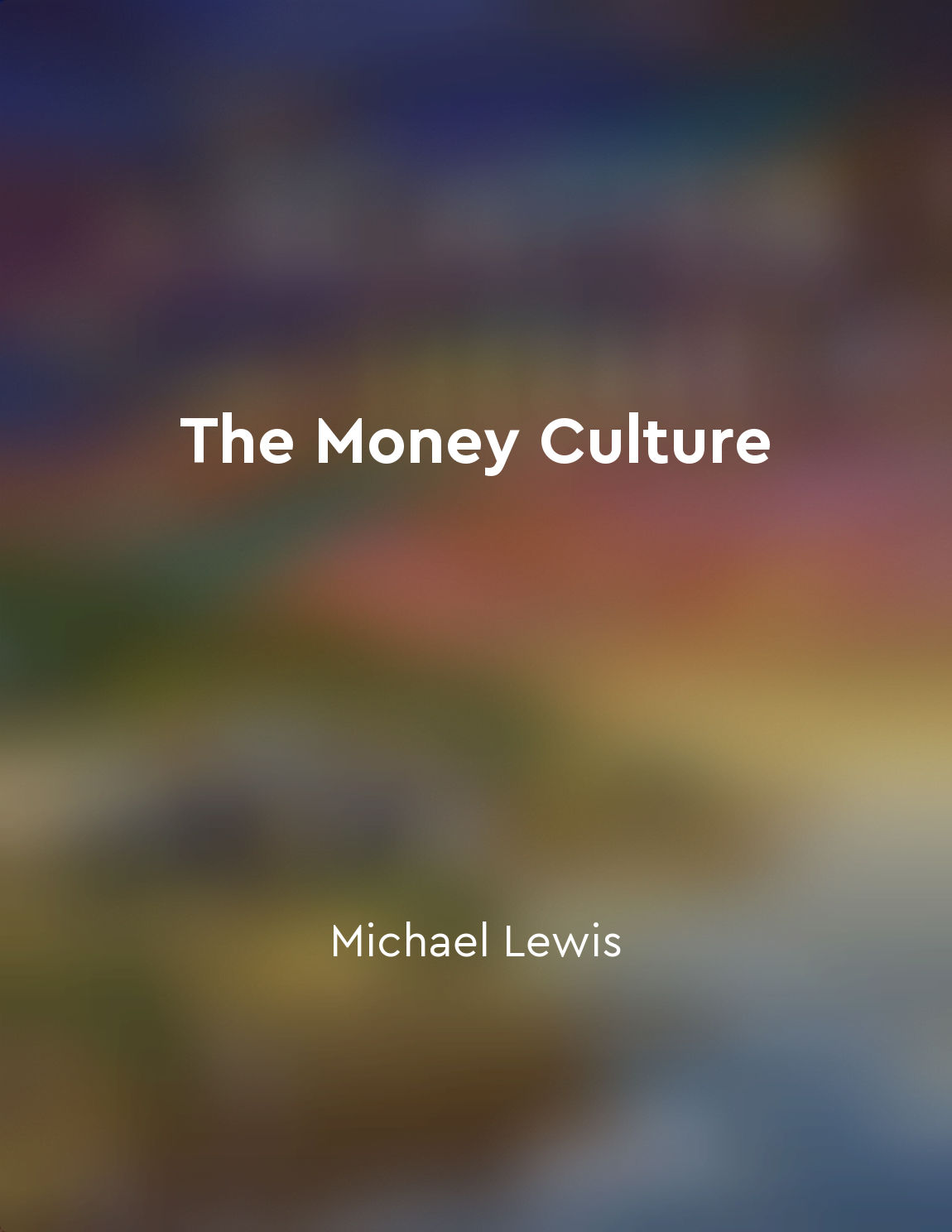Investors were blind to the impending collapse from "summary" of The Big Short by Michael Lewis
The investors, with their billions of dollars at stake, were supposed to know what they were doing. They were supposed to be the smartest guys in the room, always one step ahead of the game. But as it turned out, they were blind. Blind to the warning signs that were flashing right in front of their eyes. Blind to the impending collapse that was about to shake the very foundations of the financial world. They were blinded by their own arrogance, their belief that they were invincible, that they could never fail. They were blinded by the herd mentality that swept through Wall Street like a plague, causing them to follow each other off the cliff like lemmings. They were blinded by the complex financial instruments that they themselves had created, instruments so convoluted and opaque that even they didn't fully understand how they worked. But most of all, they were blinded by their own greed. Greed that clouded their judgment, that made them ignore the warning signs and plow ahead regardless. Greed that made them turn a blind eye to the risks that were mounting all around them, risks that would eventually come back to haunt them in the most spectacular fashion. And so they marched blindly towards the edge...Similar Posts
Building relationships with other investors can lead to valuable insights
Developing connections with fellow investors can provide a wealth of knowledge that may not be readily available elsewhere. By ...
Develop a strong risk management system
The key to successful investing lies in understanding and managing risk. You must develop a robust risk management system that ...

Urgent need for reform in money culture
The money culture is a world where the pursuit of profit often trumps ethical considerations. It is a place where greed reigns ...
Prospect theory illustrates how investors weigh potential gains and losses unequally
Prospect theory, a concept developed by Kahneman and Tversky, sheds light on how investors tend to evaluate potential gains and...
Regulatory reforms were implemented
In response to the financial chaos that followed the Crash of 1929, a series of regulatory reforms were introduced. These refor...
Risky investments and toxic assets
The financial crisis of 2008 was fueled by a variety of risky investments and toxic assets that were deeply intertwined with th...

The government's response was inadequate
The financial crisis of 2008 exposed the weaknesses in the government's ability to respond effectively to such a significant ev...

Transparency and accountability are essential for a stable financial system
When information flows freely and actions are readily explained, trust forms the foundation of any financial system. Transparen...
Government intervention
Government intervention was a critical component in the response to the financial crisis of 2008. As the crisis unfolded, gover...
